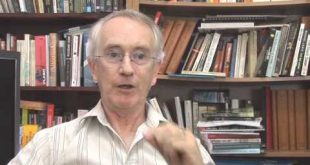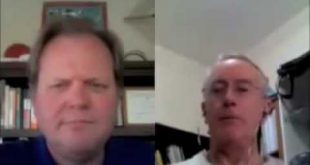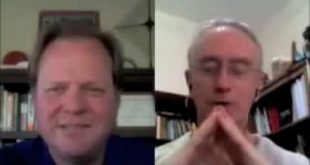The property lobby consistently argues that the driving force beneath rising house prices is rising population. Even a cursory examination of the data shows that this is not true. The real force is accelerating mortgage debt, as I'll explain in a screenshow presentation to be uploaded shortly
Read More »Australian Housing Myths: Responsible Lending
Australian banks claim that the reason the US had a housing crisis was because American lenders were irresponsible, while Australian banks were much more responsible in who they lent to. If that's so, why has Australian mortgage debt risen from half the US level (compared to GDP) in 1990 to more than 10% higher now?
Read More »Prof Steve Keen: Will there be a Double Dip in the USA? Part Two
Professor Keen explains the private debt dynamics that caused both the Great Depression and the Great Recession. The Great Recession will end when private debt is much lower than it is now--even though it's fallen by 30% of GDP since the peak, it's still 100% higher than at the start of the Great Depression. A slowdown in the rate of decline of debt actually caused much of the recent recovery, but Professor Keen expects that this slowdown will pass and a double dip will occur. Part Two of...
Read More »Prof Steve Keen: Will there be a Double Dip in the USA? Part One
Professor Keen explains the private debt dynamics that caused both the Great Depression and the Great Recession. The Great Recession will end when private debt is much lower than it is now--even though it's fallen by 30% of GDP since the peak, it's still 100% higher than at the start of the Great Depression. A slowdown in the rate of decline of debt actually caused much of the recent recovery, but Professor Keen expects that this slowdown will pass and a double dip will occur....
Read More »Dr Steve Keen on Engineer.net part 1 of 3
Dr Steve Keen on Engineer.net part 1 of 3
Read More »Steve Keen on Household Debt
Steve Keen on Household Debt
Read More »On the edge with Max Keiser 09 18 2009 Part 2 of 3
On the edge with Max Keiser 09 18 2009 Part 2 of 3
Read More »Bail-out won’t work – Steve Keen on SBS News 4-10-2008
Bail-out won't work - Steve Keen on SBS News 4-10-2008
Read More »On the edge with Max Keiser 09 18 2009 Part 1 of 3
On the edge with Max Keiser 09 18 2009 Part 1 of 3
Read More »Dr Steve Keen on Engineer.net part 3 of 3
Dr Steve Keen on Engineer.net part 3 of 3
Read More » Steve Keen’s Debt Watch
Steve Keen’s Debt Watch










